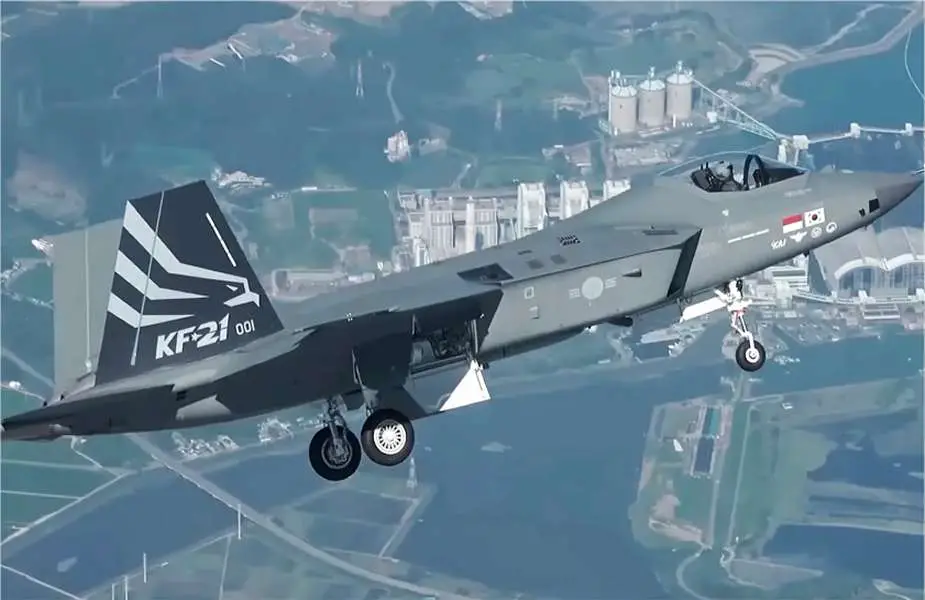Breaking news
KF-21 fighter jet goes into production for South Korean Air Force.
South Korea is on the brink of a significant advancement in its defense capabilities with the initiation of production of the KF-21, an indigenous advanced fighter jet, as confirmed by the state's arms procurement agency on January 10, 2023.
Follow Air Recognition on Google News at this link
 The KAI KF-21 Boramae is an advanced multirole fighter designed for the South Korean and Indonesian air forces (Picture source: South Korean MoD)
The KAI KF-21 Boramae is an advanced multirole fighter designed for the South Korean and Indonesian air forces (Picture source: South Korean MoD)
The Defense Acquisition Program Administration (DAPA) plans to finalize a contract with Korea Aerospace Industries Ltd. (KAI), the manufacturer of the KF-21, within the first half of this year. This contract is essential for starting large-scale production of the aircraft.
This project marks the culmination of a collaborative effort between South Korea and Indonesia, initiated in 2015, to develop a joint fighter jet. The primary aim is to incorporate 120 KF-21 jets into the South Korean Air Force by 2032, replacing the older F-4 and F-5 jets.
An official from DAPA highlighted that all six prototypes of the KF-21 have completed their test flights. These tests included various performance evaluations such as supersonic flight and weapons separation tests, confirming the operational capabilities of the aircraft. Additional tests are planned for this year, including a prototype undergoing extreme weather trials at the Defense Development Agency's test center in Seosan, southwest of Seoul.
The KF-21 Boramae, also known in its initial phases as the KF-X, represents a significant advancement in the field of military aeronautics for South Korea and Indonesia. This advanced fighter jet project was born from a collaborative effort between the two nations, aiming to create a 4.5th generation multi-role fighter. The name "Boramae" translates to "Falcon" in Korean.
Although it is not entirely stealthy like 5th generation aircraft, it nonetheless integrates stealth elements, combined with cutting-edge avionics and versatile combat capabilities. Its design allows for a variety of missions, ranging from ground attack to air superiority, thanks to an arsenal including air-to-air and air-to-surface missiles.
The KF-21 program focuses on integrating the latest radar, propulsion systems, and avionics technologies. This approach aims to strengthen military capabilities and position South Korea as a key player in the global aerospace and defense industry.
South Korea plans to produce about 120 of these aircraft for its air force by 2032. Despite the project's progress, financial uncertainties persist due to Indonesia's delayed payments, which amounted to nearly 1 trillion won last October. The project's total cost is estimated at 8.1 trillion won (about $6.1 billion) through 2026.
Seoul has committed to covering approximately 60% of the project costs, with the remaining 40% shared between Jakarta and KAI. Negotiations are ongoing to resolve payment issues, with Jakarta expected to present a revised payment plan soon.


























